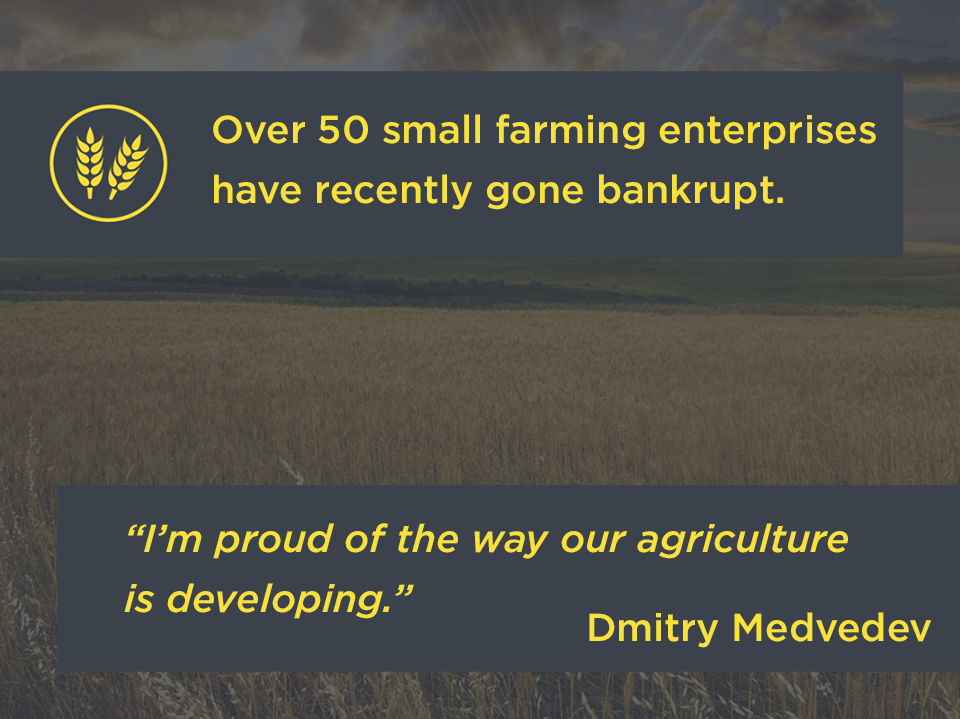Over 50 small farming enterprises have recently gone bankrupt

“I won’t let anybody touch our rural areas … I’m proud of the way our agriculture is developing,” declared Dmitry Medvedev during a recent visit to Krasnodar Krai. When judged against the backdrop of the Prime Minister’s various other remarks, this one comes across as fairly neutral.
Dmitry Anatolyevich may not be aware of this, but over 50 small farming enterprises, all of them located in a mere five of Russia’s regions, have recently gone bankrupt. Over five years of United Russia rule, the number of farmers employed in the economy has decreased by approximately 10,000 people.
At the same time, the number of large companies with close links to the state is on the rise. The bankruptcy of small-scale farms plays right into the hands of major agroholdings. Our Duma candidate Vladislav Khodakovskiy believes that this situation is detrimental to consumers first and foremost.
“The media are all over this year’s record grain harvests, but they’re keeping mum about how these records will affect the price of bread come the autumn. They’re totally silent about that. Why? Because what we’re seeing now is a concentration of agricultural production into the hands of a number of large agricultural holdings, and market prices are going to be dictated precisely by the latter. Small and medium-sized producers are finding themselves in debt bondage, and they’re being actively bankrupted.
“As a result, instead of a large number of small and medium-sized farms all competing with each other, we have two or three major players in each region, and these players are dictating prices. So it doesn’t matter whether the harvest has been good or bad – this isn’t going to impact the price of food. Nor is it going to have a good effect on the number of job positions in rural areas, because if you’ve got a single major enterprise for several villages, it’s not going to be able to employ everyone who wants a job. It’s only by supporting small- and medium-scale agricultural production that we stand a chance of solving the problems of import substitution, unemployment in rural areas, and urban food prices.”



